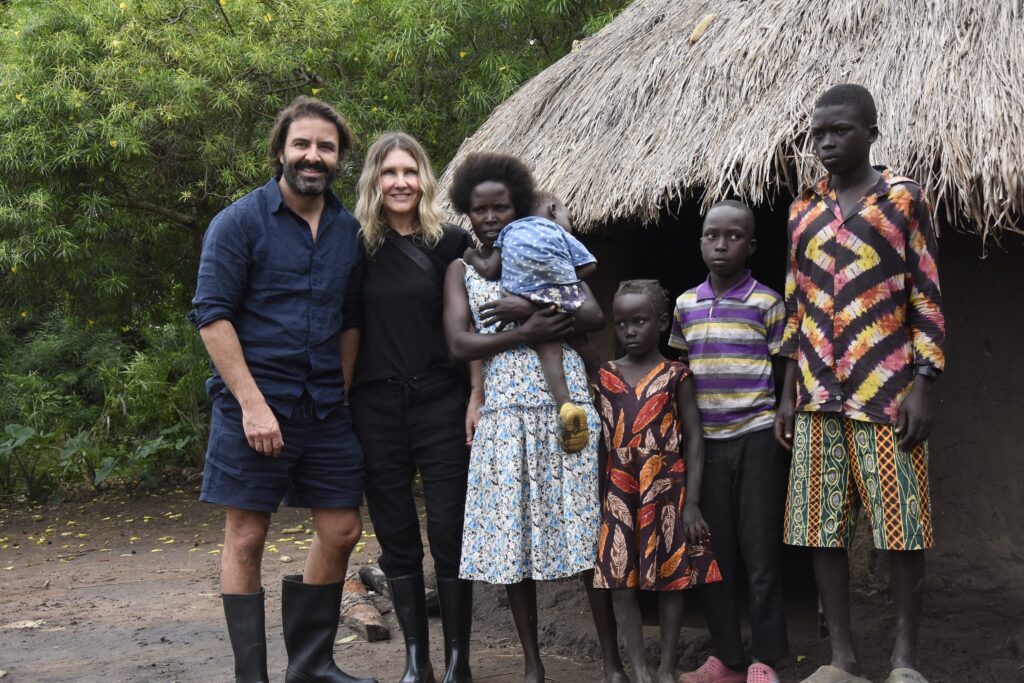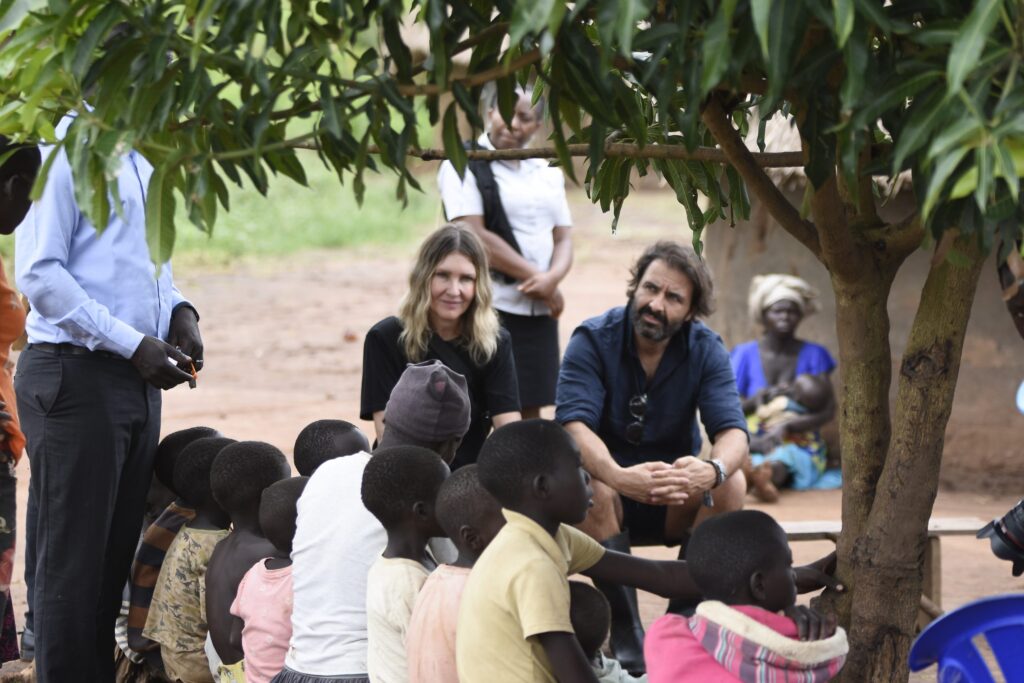It’s difficult to describe the feeling when entering a community wrought with hardship. They are places where people have faced unimaginable suffering and obstacles unfathomable to most of us in our everyday lives. Entering the quiet villages of the Amuru District of Northern Uganda in October 2023, we witnessed both pain and hope.
I am accompanied by Tania Austin, the owner and founder of the clothing brand Decjuba, one of The Hunger Project’s (THP) leading corporate partners. Their Decjuba Foundation has supported multiple initiatives and I was fortunate enough to be the facilitator on this trip.
Our primary goal was to listen deeply to those we met, in order to understand how the establishment of an Epicentre in the district would positively impact their lives. Most here practise subsistence agriculture, resulting in low household incomes and food insecurity, exacerbated by a lack of access to basic resources like clean water and healthcare.

This is also a country that has been devastated by more than two decades of brutal civil war. Whole generations are missing from villages, while investment in infrastructure and education is close to non-existent.
Katie, a mother of four, shared her life story. Abducted as a child, married to a warlord, she now existed in a world devoid of support. Her husband, possibly killed by rebels, left her to fend for her family alone. Her main worry was her son’s health – sick and without access to medical care. Her story was a testament to the resilience of the human spirit in the face of overwhelming adversity.
Lucy’s home offered a contrasting energy. She welcomed us into her world with a quiet dignity. Her six children, though weary, mirrored her strength. With her husband imprisoned for poaching, Lucy fought to provide for her family by cultivating a rented plot of land. Yet, her primary concern was the lack of clean water, a constant threat to her family’s health.
In another part of the village, a grandmother greeted us warmly, surrounded by her children and grandchildren. She told us of the difficulties in accessing education due to financial constraints. Her eldest son shared his dreams of becoming a doctor, an opportunity that felt out of reach.

These visits, although challenging, strengthened our views on THP’s Epicentre strategy and how it empowers people and entire communities to change their own future. The greatest gift we can offer is not immediate aid or a quick fix to the issue of generational hunger and poverty. It’s by walking alongside our community partners and trusting them with the tools and resources to build a pathway out of hunger themselves. I am hopeful by sharing these stories that many other Australians just like me will be moved to take action and support a new Epicentre in Amuru, so that women like Katie and Lucy can support themselves and their families.
You can help us create a world without hunger. Please make a tax-deductible donation here.
By Claire Whitbread – a major investor and long term supporter of The Hunger Project. This is her sixth trip with THP.
